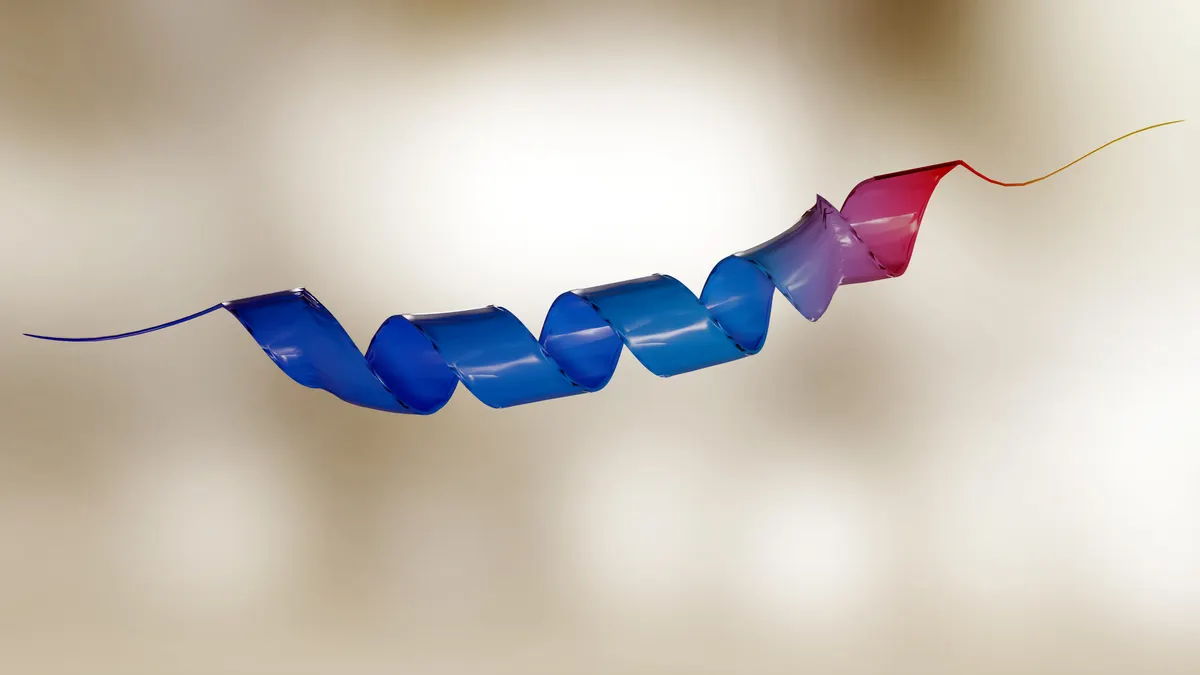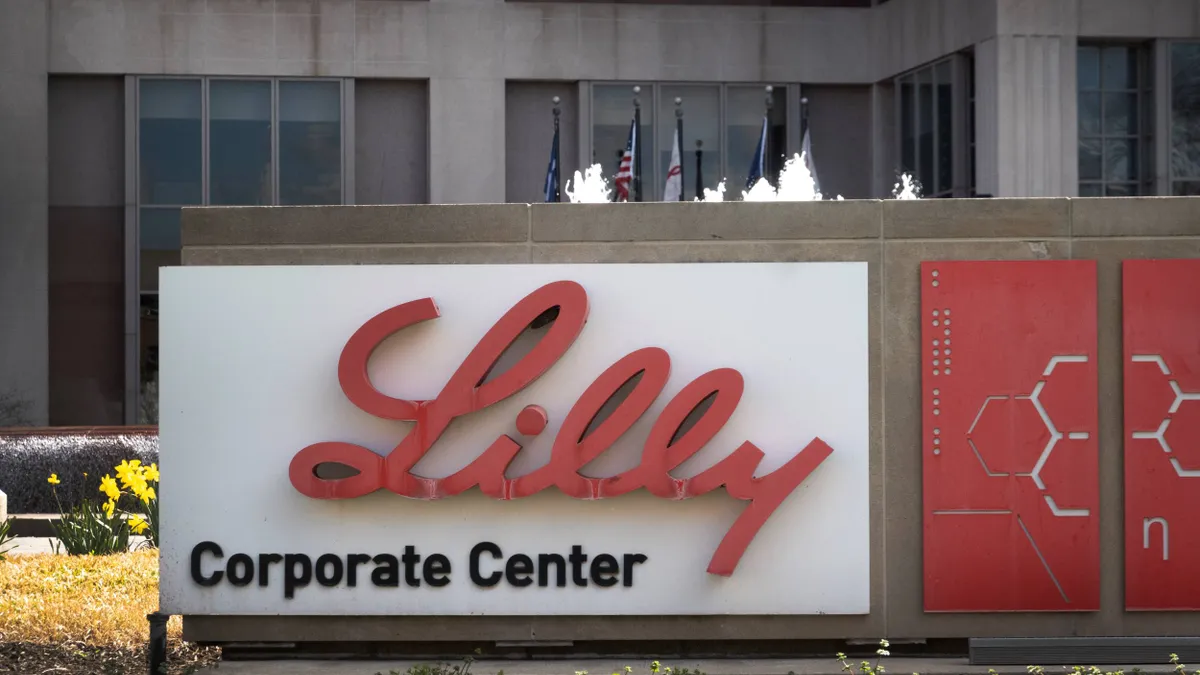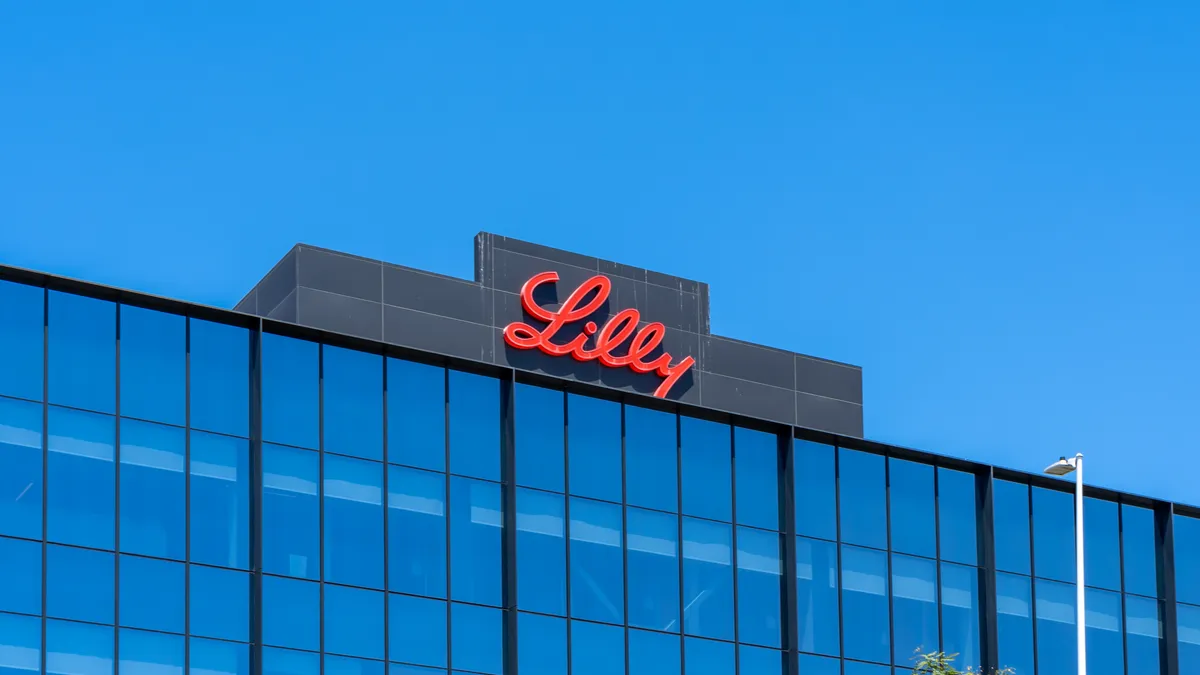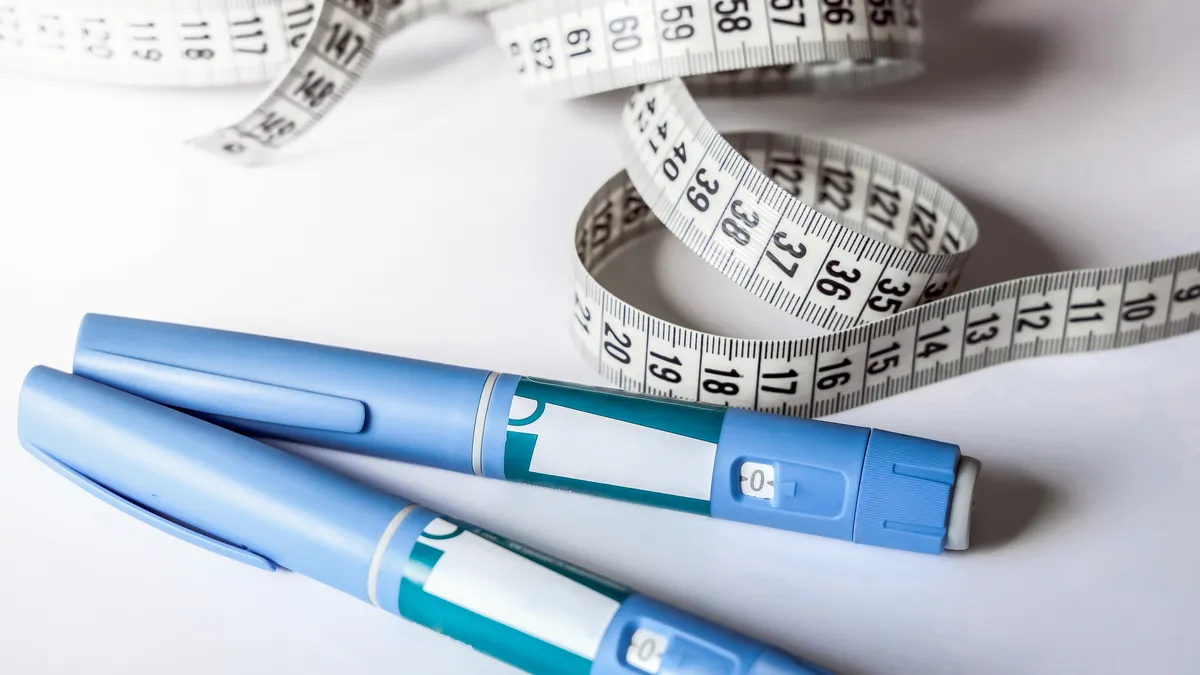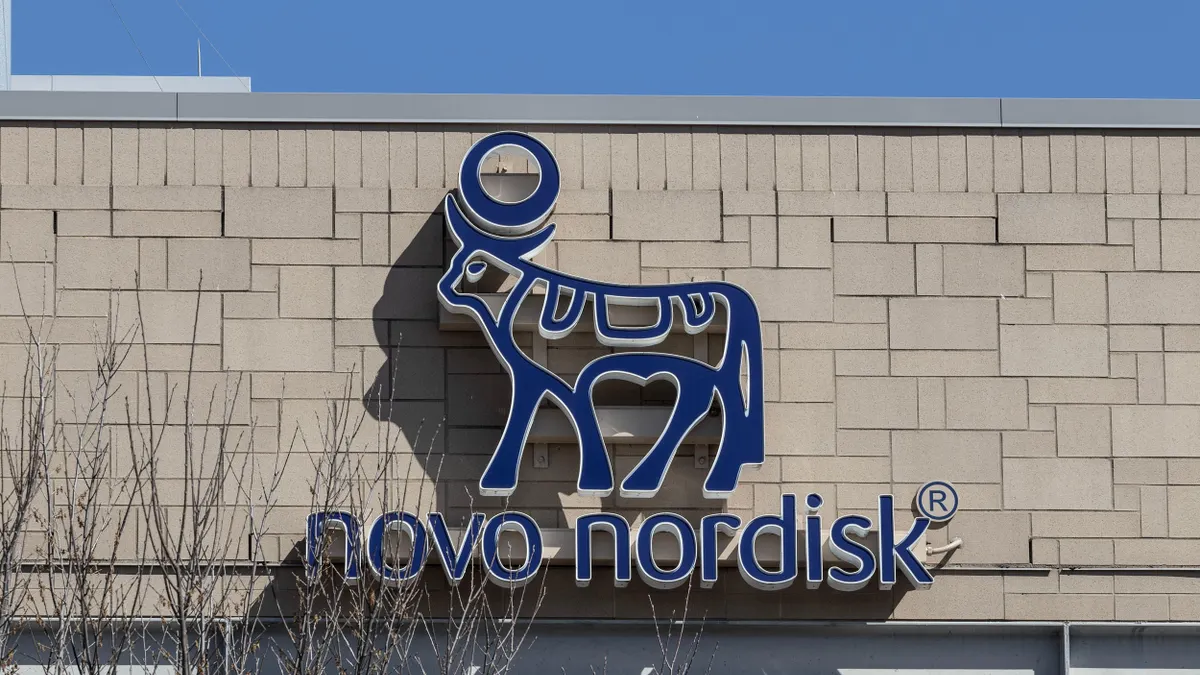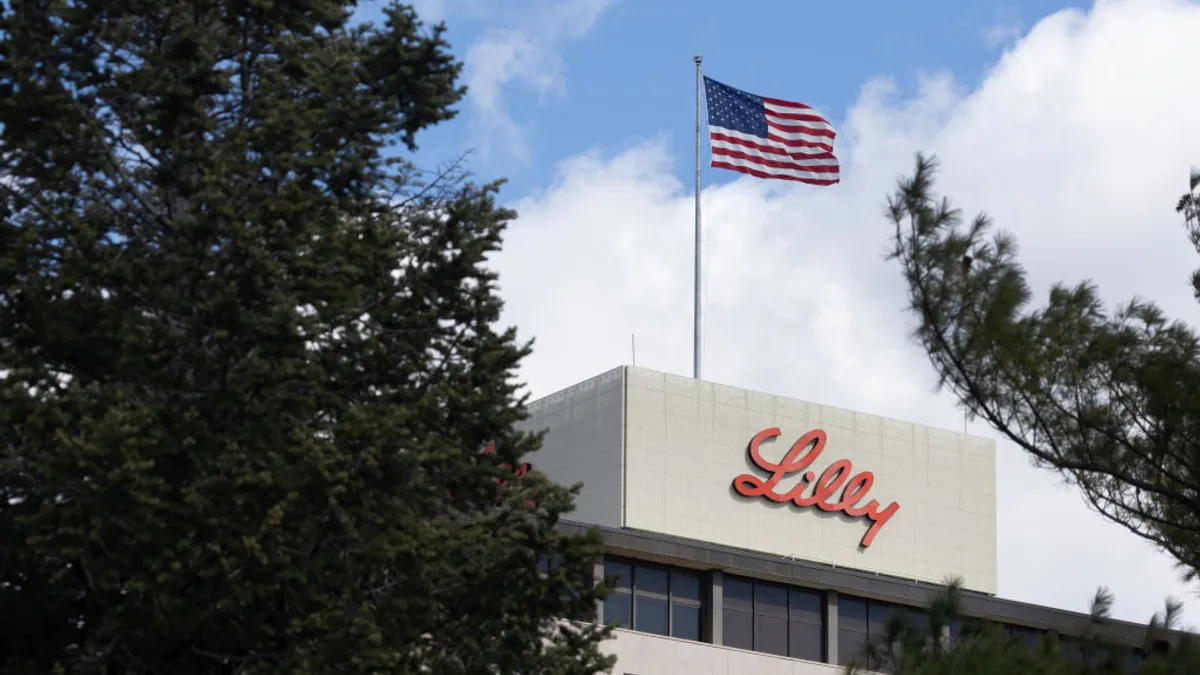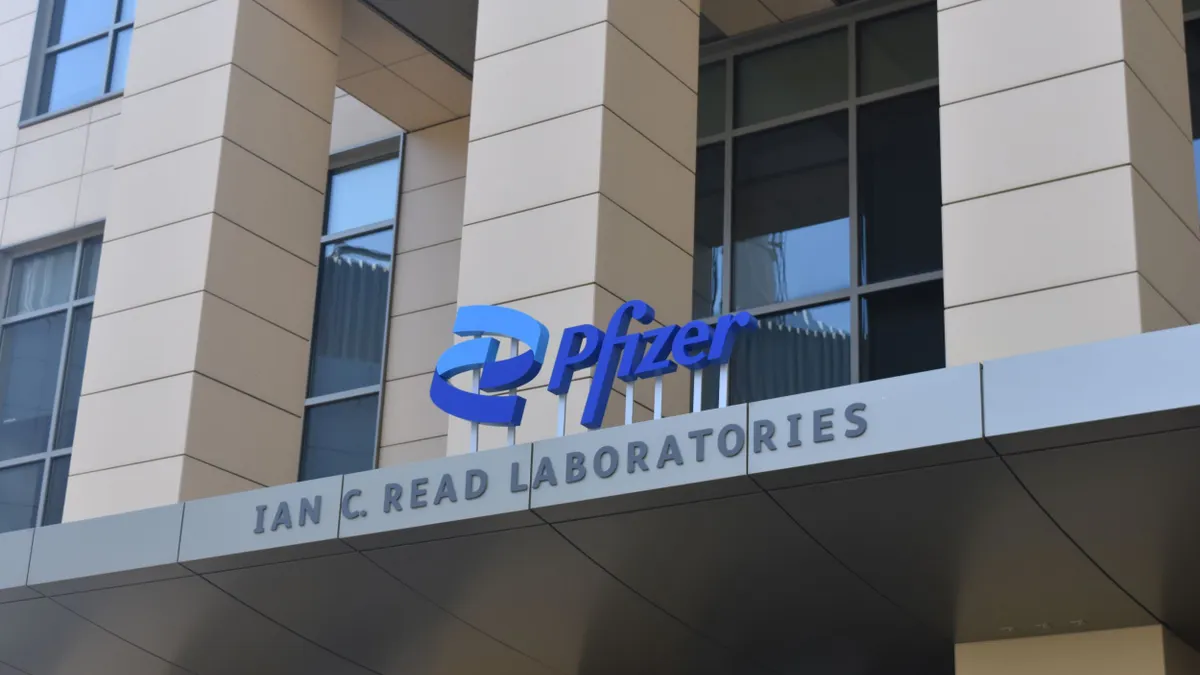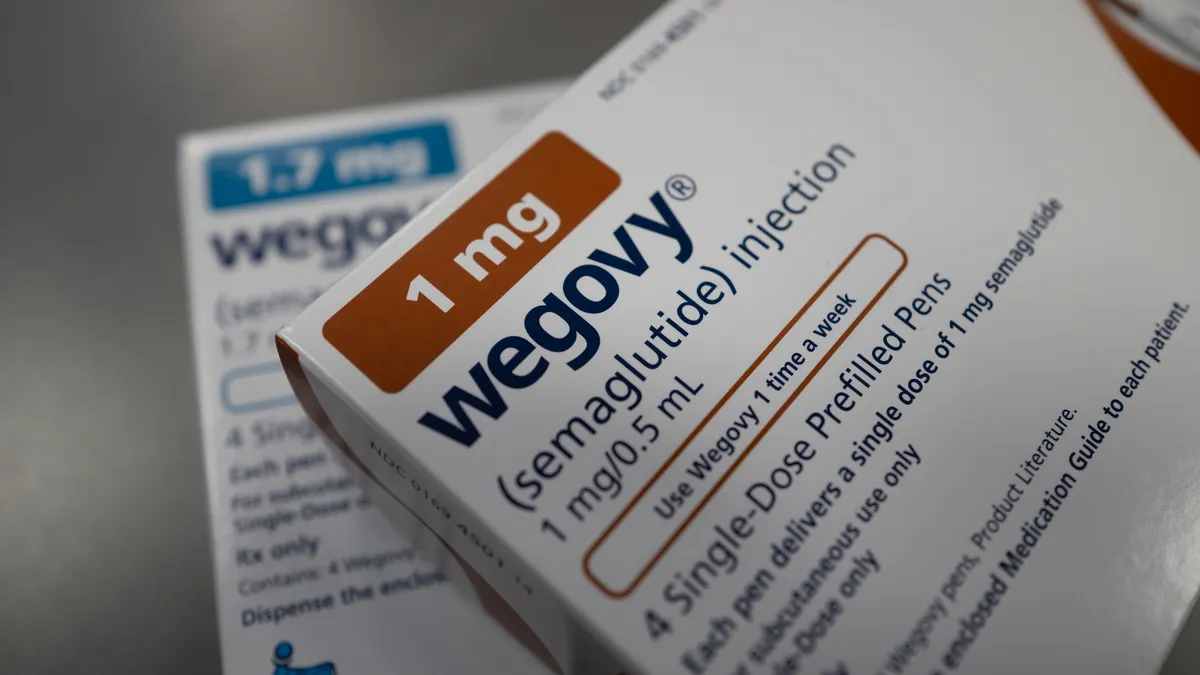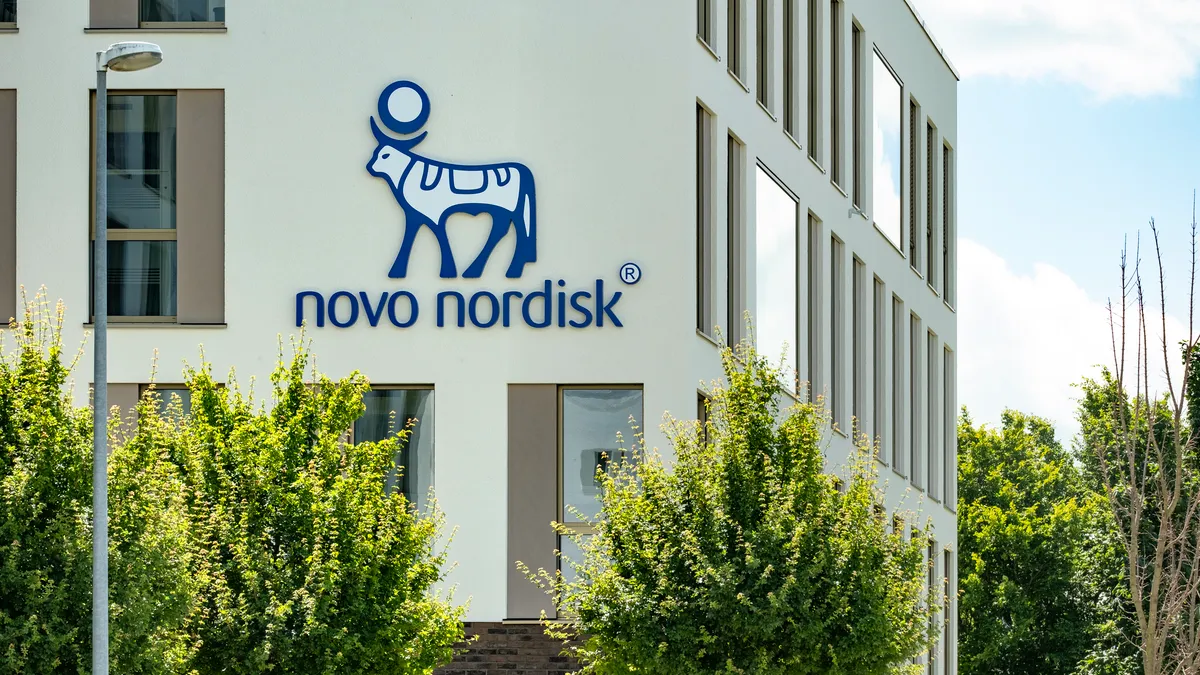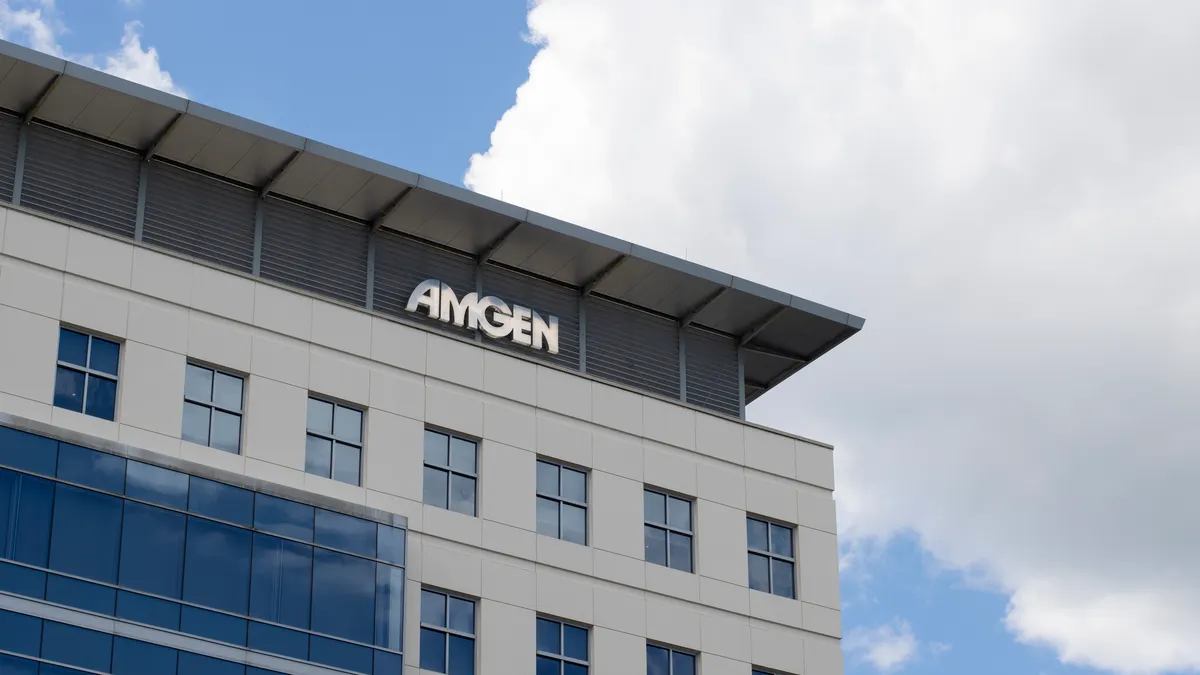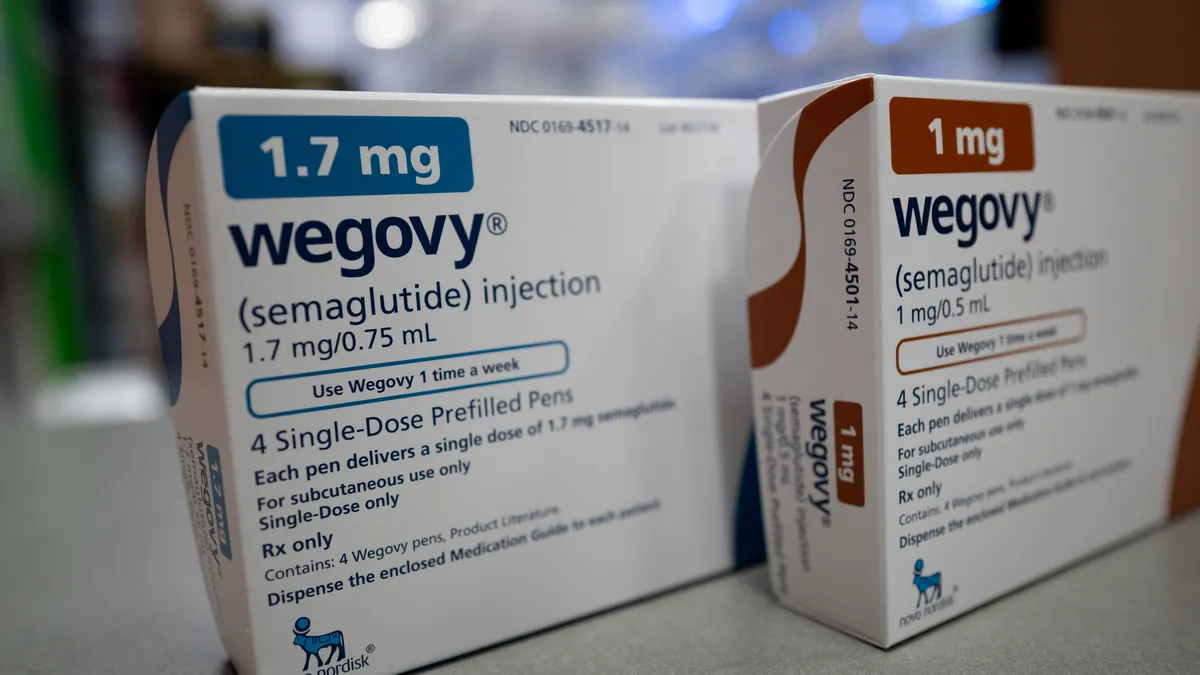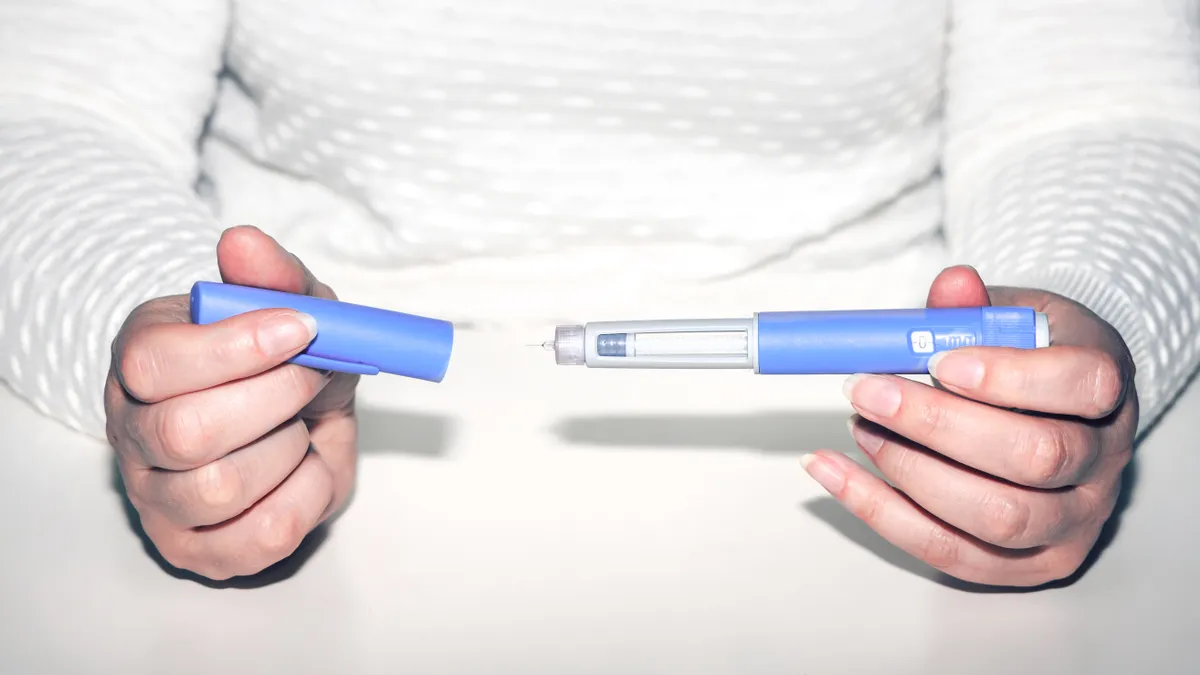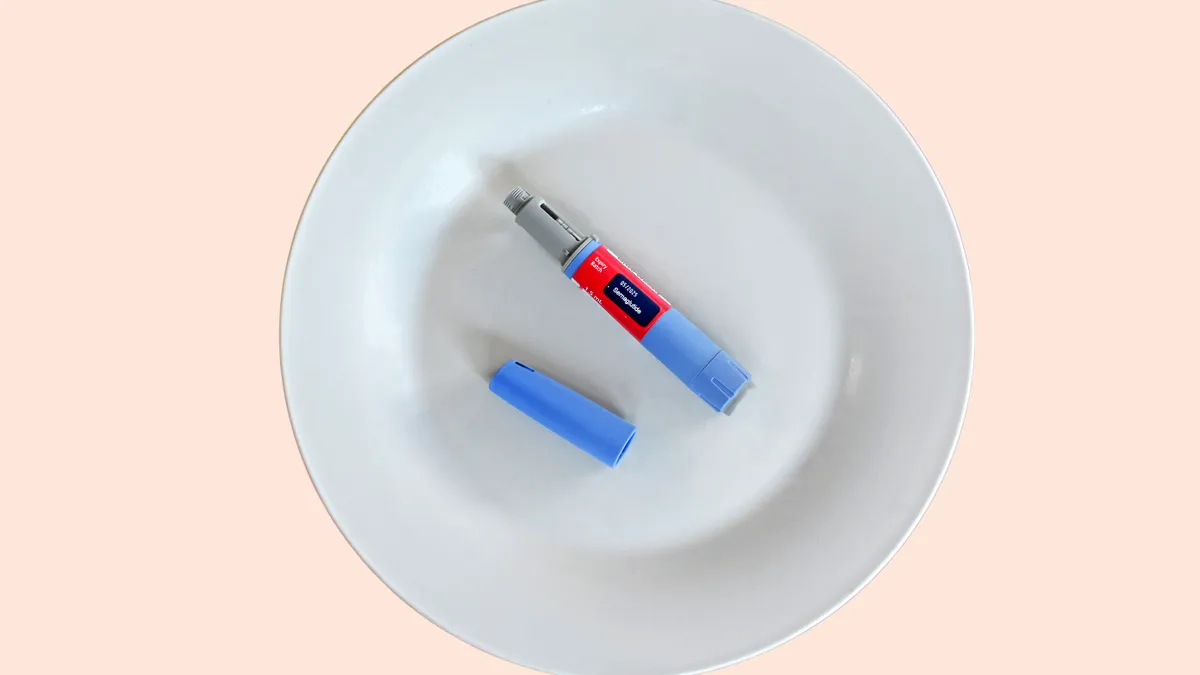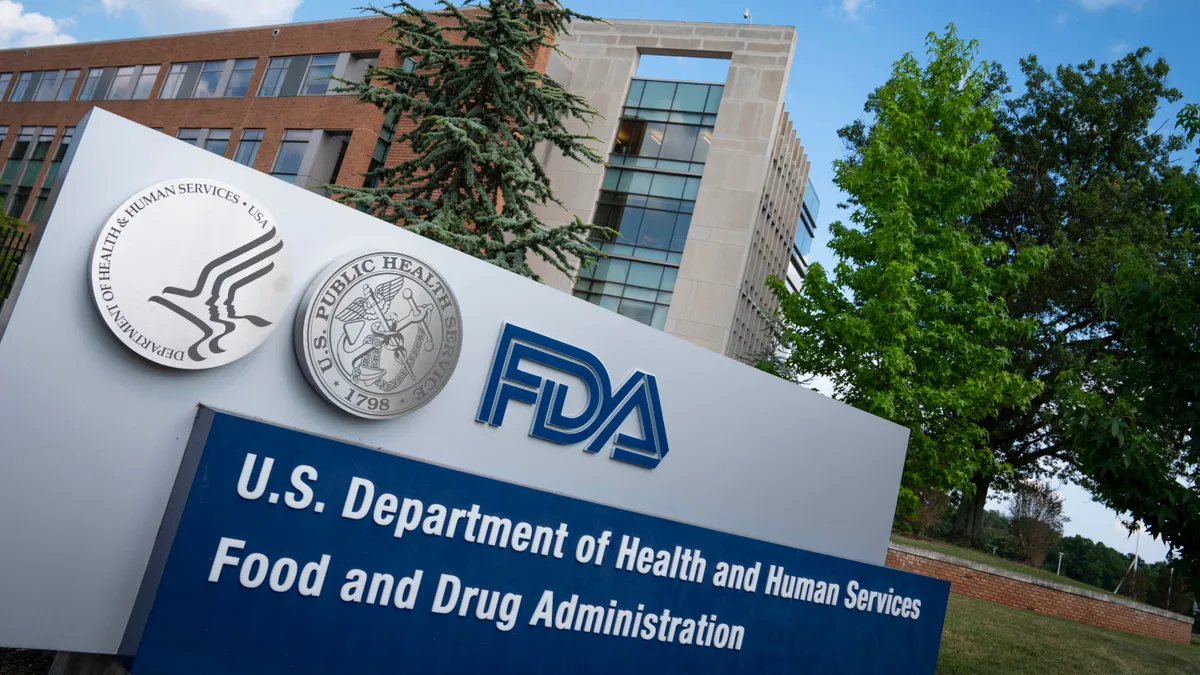Dive Brief:
- Metsera’s top obesity drug succeeded in a Phase 2 trial, helping enrollees treated with the highest dose lose an average of 14 percentage points more of their body weight than placebo recipients after 28 weeks, the company said Monday.
- Interim results from a separate trial also showed that a step-up, or “titrated,” dosing regimen limited the kind of gastrointestinal side effects that often lead people to stop taking GLP-1 drugs for obesity. That finding suggested Metsera’s drug, MET-097i, could have a tolerability profile “better than tirzepatide,” which Eli Lilly sells as Zepbound for weight loss, wrote Leerink Partners analyst David Risinger in a Tuesday client note.
- The announcement comes one week after Pfizer reached a deal to acquire Metsera for $4.9 billion. The buyout puts Pfizer back in the chase to develop obesity drugs, a market that could be worth more than $100 billion a year in sales by the next decade.
Dive Insight:
The “placebo-adjusted” weight loss achieved by Metsera’s drug at 28 weeks of treatment is roughly equal to the 13% achieved by Zebpound at the same stage in a Phase 3 study called Surmount-1, Risinger wrote. An exploratory analysis of results from an extension phase of Metsera’s trial suggest the weight loss didn’t plateau at that point either, the company said.
Metsera didn’t release safety data , but did note that only two of the 239 study volunteers dropped out because of side effects.
The trial evaluating titrated doses is still underway, with 28-week weight-loss data expected around the end of the year. So far, it's found that a three-step regimen culminating in a 1.2 milligram shot limited side effects, with rates of nausea and vomiting 13 percentage points and 11 percentage points higher, respectively, than placebo. There was also a “minimal” association with diarrhea, another common side effect of obesity medicines, according to Metsera.
Zepbound's prescribing information cites nausea rates of up to 21 points higher than placebo, diarrhea up to 15 points higher and vomiting up to 11 points higher.
The fresh results clear the way for Metsera to advance MET-097i into more definitive Phase 3 studies that will measure weight loss effects after more than a year of treatment. That task will likely fall to Pfizer, which expects to close its acquisition before the end of the year.
The deal gives Pfizer the chance to reclaim a competing position in the industry’s push to develop better obesity drugs. Pfizer previously scrapped two internal prospects due to safety concerns.








